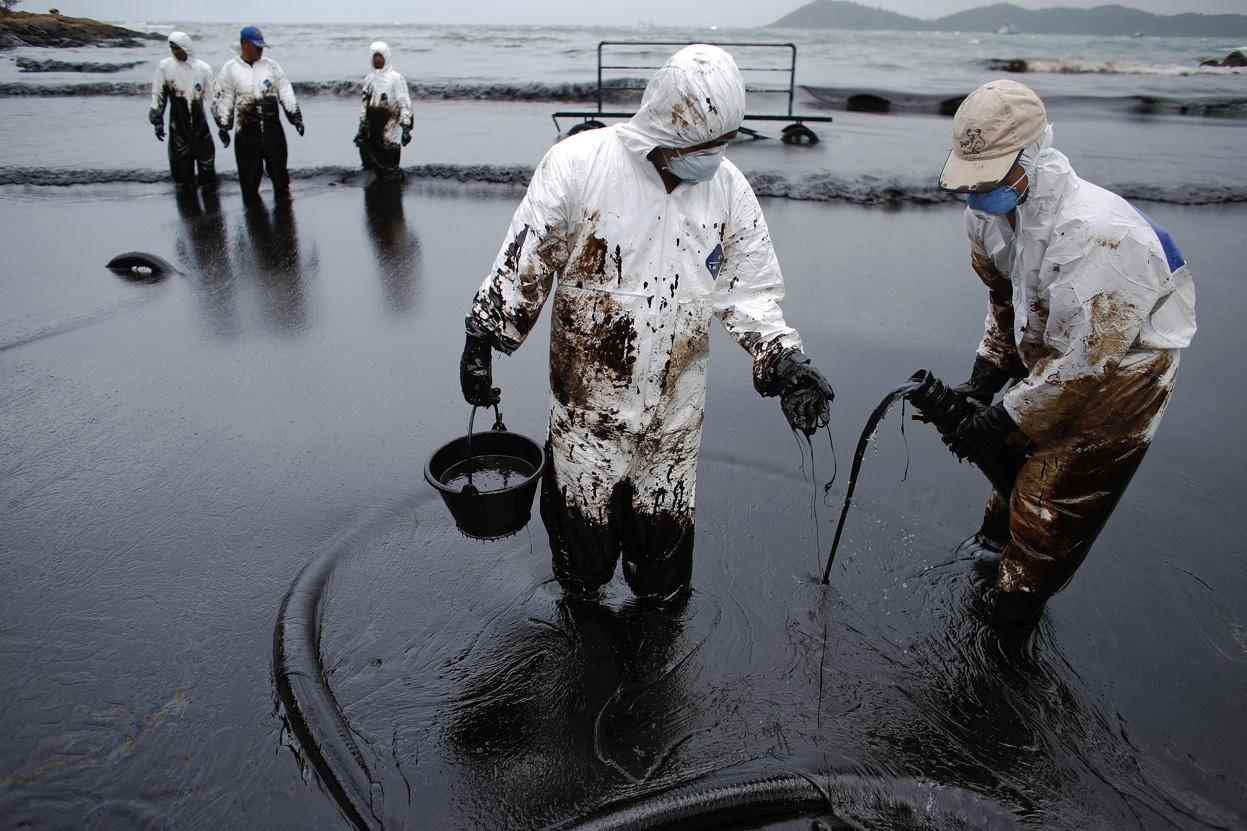One of the scientific directions of SAU “Ecooil— Global Energy and Resources for Future Materials” is environmental protection. This is due to serious environmental damages that oil extraction, processing and transportation may cause. Thus, pollution by oil and oil products are estimated to cause up to 70% of all environmental problems on our planet. It leads to soil degradation, declination of water quality, changes in biogenic elements cycles, significant changes in structures or even total destruction of ecosystems. Besides, other environmental damages caused by oil use as a global energy source may occur.


Therefore development of the technologies for prevention of soil and water ecosystems degradation, or for already degraded ecosystems’ restoration are needed. This direction is unique in SAU, because it tries to balance between active nature use and simultaneous environmental preservation in conductive state. It has to be taken into account, that together with oil processing, in oil regions other anthropogenic activities may exist, and it causes negative synergetic effects. To prevent all the possible negative impacts described, we suggest the current project, with the main goal to work out biotechnologies for sustainable development of territories and society.
Sustainable development can be attained through relevant assessment of risks and ecosystems state, application of ecologically friendly technologies, smart development of management system of natural resources and wastes flows. The search for balance between society development and prosperous planet situation is a global challenge in terms of which the given project is to be implemented. Project goals will be divided into 3 blocks each of them will be aimed at handling burning environmental issues: wastes utilization, soil and agricultural plants fertility improvement, scarcity of drinking water. The first block «Wastes» will solve issues aimed at the decreasing of organic wastes in environment. There will be studied internal mechanisms and developed technologies for utilization of organic wastes and emitted carbon dioxide. Apart from waste utilization the developed technologies will enable to obtain: a) useful biosynthesis products with high added value, such as pharmacologically active compounds, nutraceuticals, fodders and lipids; b) suppressive composts featuring fertilization effect and ability to inhibit causative agents of plant diseases. The second block «Soil fertility and agricultural plants» will tackle issues connected with transformation of organic compounds in soil and targeted impact on carbon sequestration for improving its fertility and decreasing the greenhouse effect. The focus will be given to soil contamination with genes resistant to antibiotics provoking significant changes in soil microbiome and influencing crop-production. Of high importance for soil protection is the issue of reduced environmental intake of chemical compounds for plant protection which can be achieved through their replacement with biological protection agents of plants (biopesticides). Their action mechanism, biopreparations compatibility will be analyzed, and their application technology will be designed. The third block «Water purification» proposes focus on the essence of toxic actions of cyanotoxins produced by cyanobacteria that appear to be dangerous elements of water objects widely spreading during contamination of water reservoirs. For the rapid detection and quantification of cyanobacterial toxins the most common multiplex diagnostic system will be developed. In order to reduce toxins in drinking water sources and reservoirs the water purification technology will be developed. The results obtained will be of high scientific and practical value. They may be applied in handling environmental issues both in the Russian Federation and beyond it.
